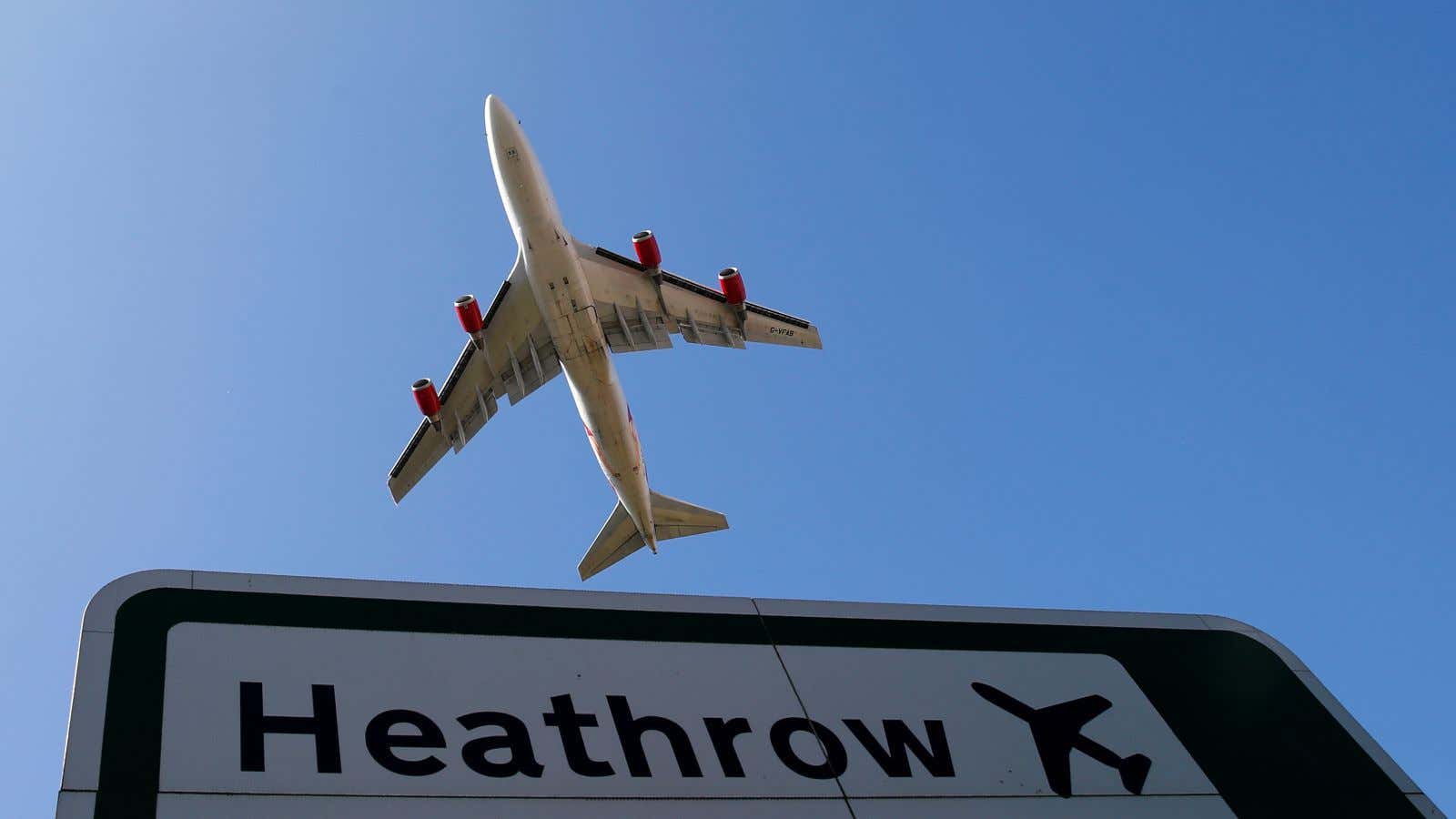At 11pm on the 29th of March, the UK will—maybe, probably, and most likely—leave the EU.
And on that day, some people will plan to wake up and head to the airport for flights to the EU. But will they be able to board them? The answer to that question depends on whom you ask.
Much hinges on whether the UK and the EU reach a broader deal governing their relationship before Brexit day. The risk of failing to do so has become more pronounced in recent weeks, with Theresa May’s government appearing to dig its heels in the ground further, and the EU looking none too acquiescent.
As Quartz previously explained, unlike other industries—which can fall back on WTO agreements to govern trade in the event that the existing agreements cease to exist—the aviation industry has no fallback plan. That means in the case of a no-deal Brexit on March 29, there will be no regulatory framework upon which flights can operate from the UK to the EU on March 30. A UK-based airline would need to get permissions from each EU member nation one by one. (It’s worth noting that EU-based airlines won’t be able to fly to the UK without permission, either.)
According to a position paper released by the UK government last week, everything is going to be totally fine—unless it’s not. The paper noted that in the event of a no-deal scenario, “the UK’s preference would be to agree a basic arrangement or understanding on a multilateral basis between the UK and the EU… by definition any such agreement would be reciprocal in nature.”
This kind of temporary, provisional agreement sounds easy enough—except when you consider that the EU and the UK have been able to agree on little thus far. And, in the event that negotiations fall apart last minute—what people mean when they say the UK might “crash out” with no deal—both parties will be mired in countless other bureaucratic complexities all in the same week.
Later in the paper, the government provides a sliver of real talk, noting that while it’s in everyone’s interests to keep flights running, it also requires everyone’s cooperation: “It would not be in the interest of any EU country or the UK to restrict the choice of destinations that could be served, though, if such permissions are not granted, there could be disruption to some flights.”
Currently, there is no impediment on making a booking on the two largest UK-based airlines by passenger volume—easyJet and British Airways—for March 30 to an EU destination. Reps for easyJet and IAG, British Airways’ parent company, told Quartz they are making no contingency plans for the event of no deal. IAG said they are “confident that a comprehensive air transport agreement between the EU and the UK will be reached and that flights will continue as normal after Brexit,” and easyJet noted that it is relying on the fact that “consumers, airlines and politicians across the UK and Europe want flights between the UK and Europe to continue.”
Another prominent carrier, Ryanair, is a little more spooked. The Dublin-based low-cost carrier told Quartz that “We remain concerned at the increasing risk of a hard (no-deal) Brexit in March 2019. While we hope that a 21-month transition agreement from March 2019 will be agreed, recent events in the UK have added uncertainty, and we believe that the risk of a hard Brexit (which could lead to flights being grounded for a period of days or weeks) is being underestimated.”
The company has taken several steps in preparation, including registering for a domestic air operator’s certificate from the UK’s Civil Aviation Authority, which allows them to fly their internal UK flights (London to Edinburgh, for example) as a UK carrier (not a European one) and thus without disruption if there’s no deal. They’ve also added a “Brexit clause” to bookings made for the post-March 29 world, noting its “summer 2019 UK schedule is subject to the regulatory environment allowing these flights to take place.”
What remains to be seen is how Brexit-voting Brits might react if booking their easyJet flight to Spain is not so easy or cheap anymore.
